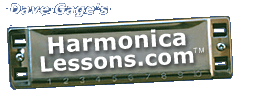Quote
Anybody out there have any experience with the new Hohner XB-40 valved harmonica? Pluses and minuses to this arrangement of reeds?Thank you
This is from an email sent to us last week-
"In late June I ran into Rick Epping at the California Early Traditional Music Society summer solstice in Moorpark. He played his XP-40s. They are real clunkers and sounded a little more breathy than when he played the Big River harps (which he uses for special tuning, he says, because they are cheaper). He feels the XP will be a major innovation because of being able to bend all bendable holes down to the next full interval.
But, when asked why a harper can't just move to the next hole to do that, he said a major advantage of this new harp is that you can slide into the next note without a directional change in air flow.
Even though they are not out yet, Epping says they are getting a lot of interest. He said it took him ten years to develop. But a major disadvantage is that Hohner has not yet devised replacement reeds or reed plates for them. When asked what happens when you fatigue a reed and can't use an MS replacement plate, he had no ready answer. He felt that they should not fatigue as readily since the bending comes from the "forward" part of your mouth and not from abdominal/diaphragmatic breathing. So there should be less pressure on the extra pair of reeds that do the bending.
This made no sense to me since it appeared to mean sacrificing tone. And I'm not sure about that "forward" part of the mouth stuff except for the high pitch harp bends. Because when I tried to see where my bends were in relation to my mouth, it appeared that bending 2,3, or 4 draw on a high F harp playing 2nd position for key of C were the ones that were more "forward" in my mouth, not lower pitch harps or playing the low F. But that just may be my take on it." --END QUOTE--
Play on,
Webmaster
